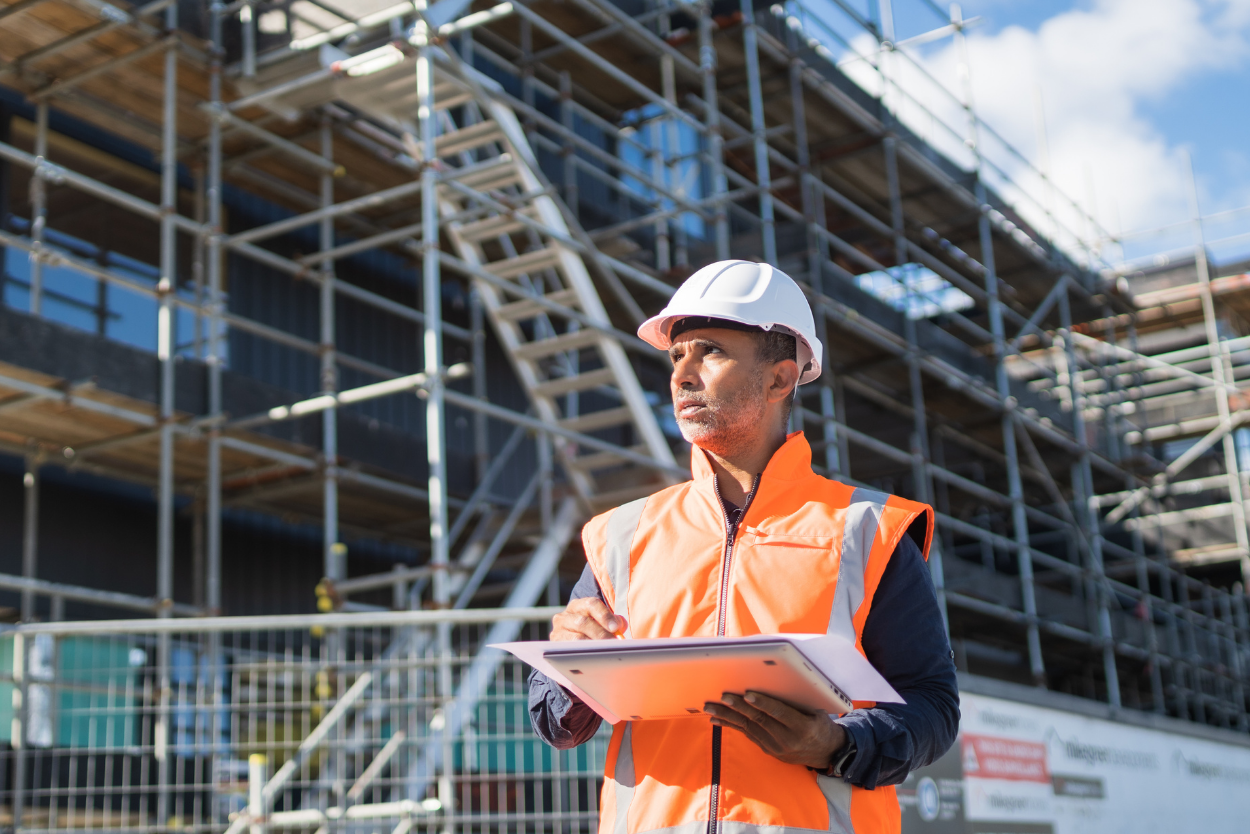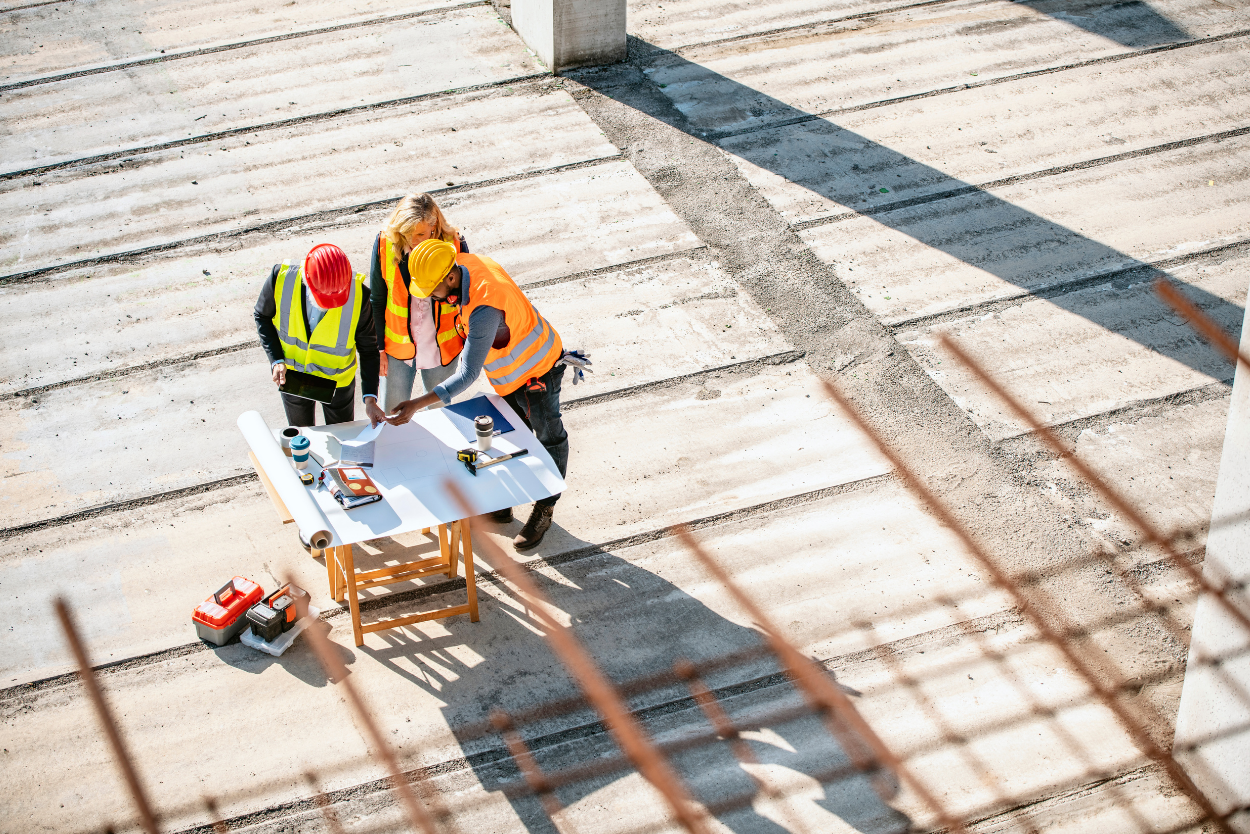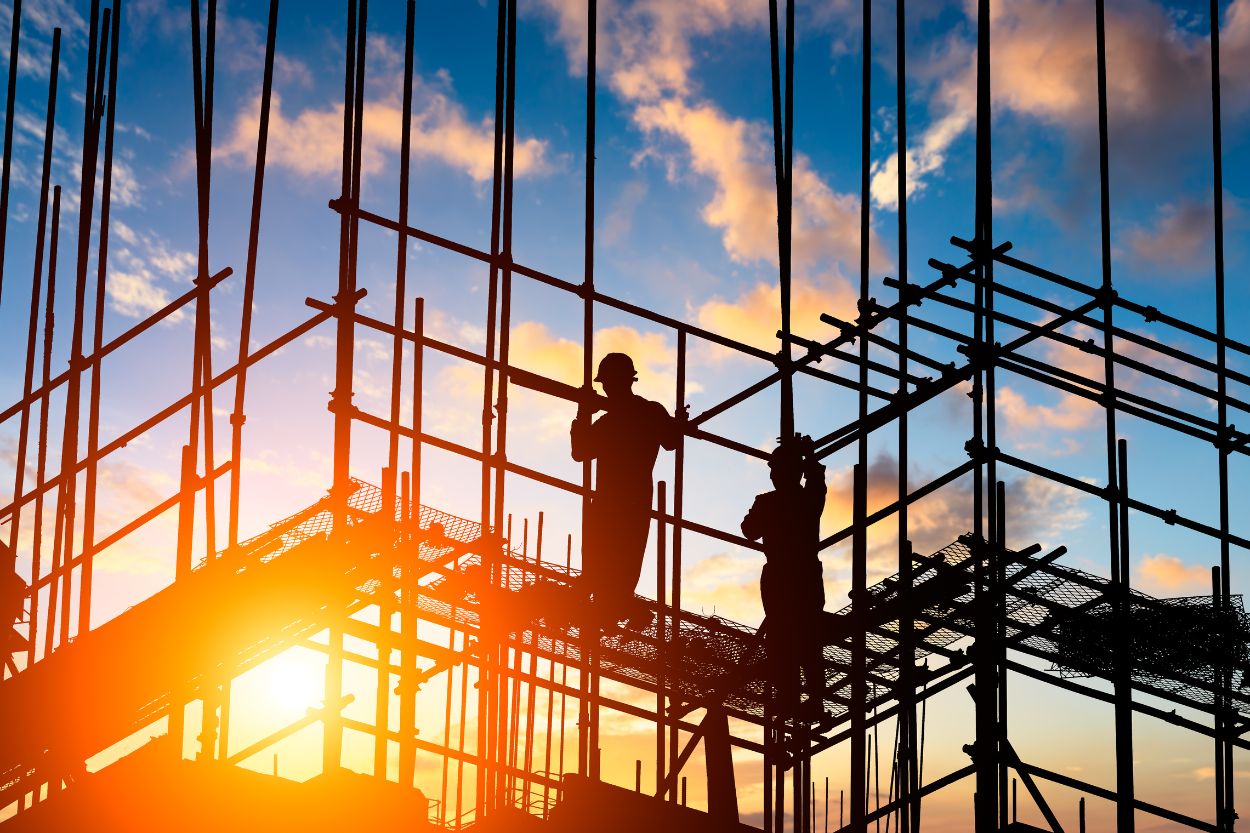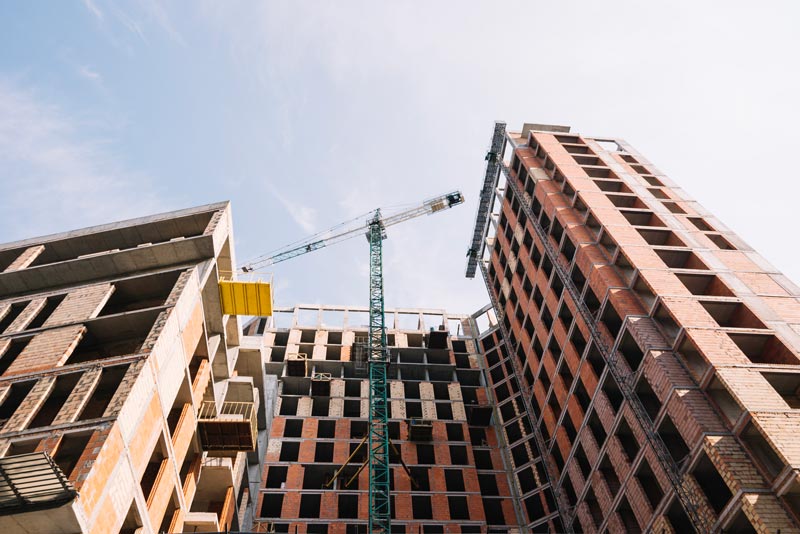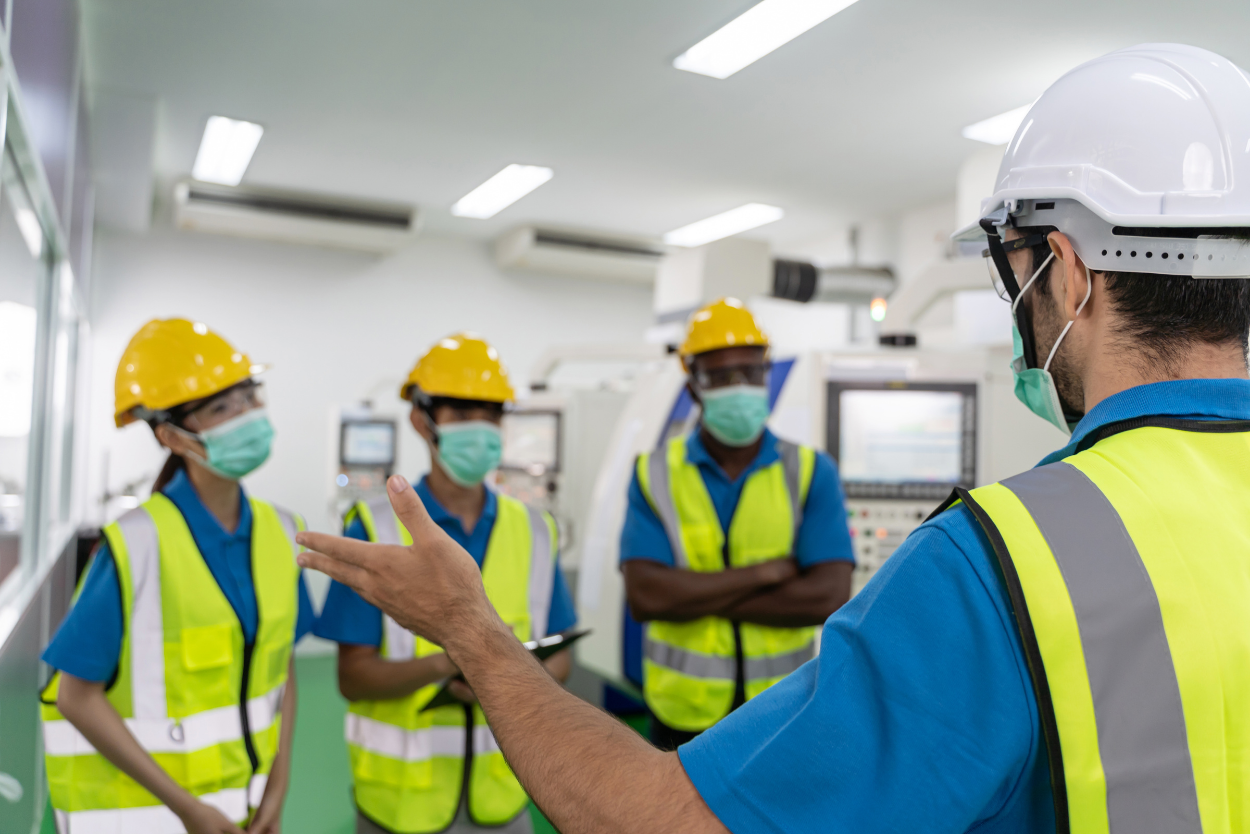Table of Contents
Key Takeaways
Essential Responsibilities of a Construction Project Manager
- Safety Management
- Project Planning and Scheduling
- Budget Management
- Resource Allocation
- Risk Management
- Quality Control
- Communication and Coordination
Essential Skills for Construction Managers
Types of Projects for Construction Managers
Partner with Claris Design•Build for Your Next Construction Project!
Key Takeaways✔ Ensures a clear plan with timelines that keeps the project on track. ✔ Manages the budget to prevent cost overruns and ensure financial health. ✔ Allocates resources efficiently to ensure availability when needed. ✔ Mitigates potential issues through proactive risk management. ✔ Maintains quality control to meet standards and client satisfaction. ✔ Keeps stakeholders informed and aligned through clear communication. ✔ Protects workers and ensures compliance with safety protocols. |
Picture this: a major construction project is underway, but halfway through, delays and budget overruns begin to surface, causing the entire initiative to crumble. This is a common scenario for organizations that underestimate the importance of effective project management. A construction project manager is essential for ensuring the success of a construction project. Their responsibilities are diverse, covering every aspect from planning to completion.
When 42% of companies fail to recognize the need or importance of project management, it underscores the critical necessity for skilled project managers. Effective project management not only saves time and money but also enhances the overall quality and safety of construction projects.
Essential Responsibilities of a Construction Project Manager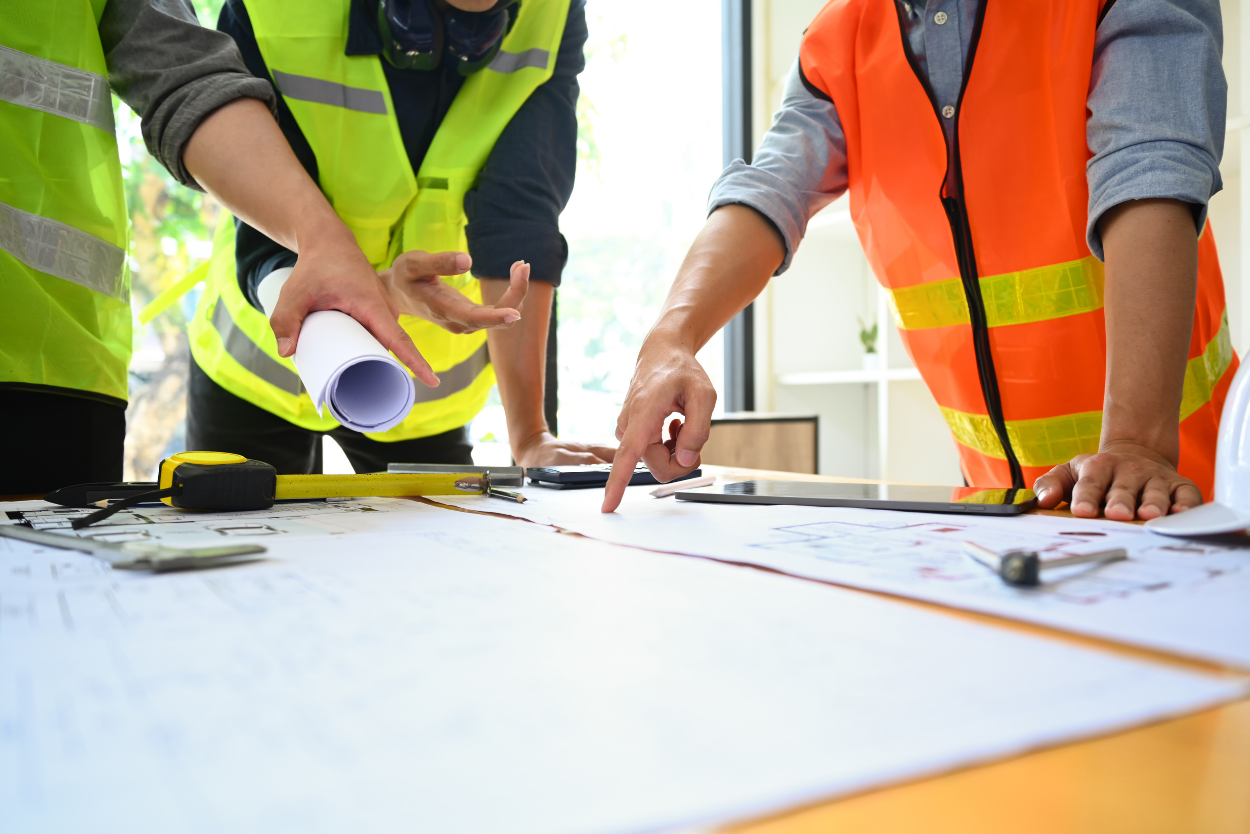
Construction project managers are responsible for overseeing every aspect of a construction project, from initial planning to final execution, ensuring that all goals are met on time and within budget. Here are the seven essential responsibilities that define the role of a construction project manager:
1. Safety Management
Safety is a top priority on any construction site. The construction project manager ensures all safety regulations are followed, protecting workers and the public.
- Implementing safety protocols and training: The construction project manager develops and implements safety protocols, providing training to ensure all workers understand safety requirements. This foundational step ensures everyone on site is aware of the safety standards and procedures.
- Conducting regular safety inspections: Regular inspections are conducted to identify and address potential safety hazards, ensuring the project is completed safely. These inspections help in proactively managing risks and maintaining a safe working environment.
- Ensuring compliance with health and safety regulations: The construction project manager ensures the project complies with all relevant health and safety regulations and that workers are aware of their responsibilities. Compliance is critical to avoid legal issues and to ensure a safe workplace for all.
2. Project Planning and Scheduling
Effective project planning and scheduling lays the foundation for a successful project execution and delivery. It serves as the roadmap to ensure all team members are aligned and the project stays on track.

- Developing a project timeline with milestones: The first step in project planning is defining the project scope. This involves understanding the project's objectives, deliverables, and requirements. The project manager works closely with the client and stakeholders to gather detailed information about their expectations and needs.
A well-thought-out project plan serves as a blueprint, guiding every phase of the project and ensuring all team members are on the same page from the start. This proactive approach also helps in preempting potential challenges and mitigating risks that could lead to delays and cost overruns.
- Identifying project deliverables: Clearly defining the project's deliverables is essential for keeping the team focused and aligned. The construction project manager works closely with stakeholders to identify and document these deliverables, ensuring everyone understands what needs to be accomplished.
This set of deliverables guides the project's progress and helps in managing expectations. This proactive approach ensures that all team members are aware of their responsibilities, which reduces the likelihood of misunderstandings and keeps the project on track.
- Estimating resources and budget requirements: During the planning stage, the construction project manager accurately estimates the resources needed for each task and develops a comprehensive budget. This involves a detailed assessment of labor, materials, equipment, and other costs.
- Creating a detailed project schedule: The construction project manager outlines the start and end dates for tasks, as well as their dependencies, to form a realistic and achievable schedule. Coordination with all team members is essential to keep the project on track. By anticipating potential delays and planning for dependencies, the construction project manager can address issues before they become critical, ensuring timely project completion.
3. Budget Management
Once the project is underway, the construction project manager focuses on staying within financial constraints by tracking expenses and adjusting forecasts as necessary. Regularly comparing actual costs to the budget and making necessary adjustments helps prevent budget overruns and keeps the project financially viable.
- Budget monitoring and cash flow management: Efficient research and development or R&D planning covers all project costs—materials, labor, equipment, and contingencies—especially since 56% of construction firms lack such. Forecasting cash flow ensures sufficient funding is available to cover all expenses, preventing cash shortages that could delay the project. This comprehensive approach helps avoid financial pitfalls, ensures the project stays within financial constraints, and provides a clear roadmap for decision-making.
- Managing expenditures and negotiations: Approving expenditures and handling financial adjustments, along with negotiating contracts and managing subcontractors, are key duties of a construction project manager. This involves making necessary financial adjustments to accommodate changes in project scope, unexpected costs, or shifting priorities, ensuring the project remains financially viable. Additionally, the project manager reviews bids, selects contractors, and oversees their performance to ensure value and quality.
4. Resource Allocation
Efficient resource allocation ensures the right personnel, equipment, and materials are available when needed. The construction project manager coordinates these resources to keep the project on track, balancing competing demands to maximize productivity and minimize waste.
- Task assignment and resource management: The construction project manager assigns tasks based on team members' skills and expertise, ensuring that tasks are completed by the most qualified individuals. They also balance workload and resources to avoid overloading team members, monitor progress, and make necessary adjustments to keep the project on track.
- Coordination of deliveries and management of subcontractors: The construction project manager coordinates with suppliers and subcontractors to ensure timely delivery of equipment and materials. They also manage the performance of subcontractors and suppliers to meet the project's quality and schedule requirements.
5. Risk Management
A construction project manager must anticipate potential issues and develop strategies to address them, continuously managing risks throughout the project's lifecycle. Due to the complexity and multiple stakeholders, a proactive risk management approach is essential.
- Risk assessment and contingency planning: Developing contingency plans is a key part of managing identified risks. These plans ensure that the project can continue smoothly despite unexpected issues. Knowing how to create effective contingency plans is vital for minimizing delays and financial losses.
- Ongoing risk management and stakeholder communication: Risk management is an ongoing process that requires continuous monitoring and response. The construction project manager must regularly update contingency plans and adjust strategies as new risks emerge or existing risks evolve. This ongoing vigilance is crucial for adapting to changing circumstances and maintaining project stability.
6. Quality Control
Ensuring the project meets quality standards is essential in any construction project. The construction project manager implements quality control measures and conducts inspections, setting standards, monitoring compliance, and addressing issues. This ensures the final product meets client expectations and relevant regulations.
- Establishing and Maintaining Quality Standards: The construction project manager sets clear quality benchmarks based on industry best practices and client requirements. Regular site inspections and audits ensure work meets these standards, addressing safety hazards, equipment issues, material shortages, and building code compliance. Promptly addressing quality issues prevents delays and extra costs. The manager identifies root causes and implements corrective actions quickly.
- Team Training: Additionally, the construction project manager ensures all team members are trained on quality standards and procedures. This training promotes a unified approach to achieving quality goals and empowers team members to maintain high standards consistently.
7. Communication and Coordination
Effective communication is crucial for a smooth construction project. The construction project manager acts as a liaison between stakeholders, facilitating meetings, providing updates, and ensuring alignment.
- Facilitating regular meetings with stakeholders: The construction project manager holds regular meetings to keep everyone informed of the project's progress and share relevant information. These meetings foster open communication and ensure all stakeholders are on the same page.
- Providing project updates and reports: Regular updates and reports on progress, finances, and issues are provided by the construction project manager to keep stakeholders informed and address any problems promptly. This transparency helps build trust and enables proactive problem-solving.
Essential Skills for Construction Managers
Being a construction manager requires a diverse set of skills to handle the complexities of building projects effectively:
- Project Management: Efficiently coordinate activities and teams to meet deadlines and budgets.
- Health and Safety Knowledge: Implement safety protocols and understand regulations to reduce worksite risks.
- Communication: Convey information and instructions to clients, workers, and stakeholders.
- Analytical Thinking: Interpret technical drawings and contracts accurately and provide clear instructions.
- Attention to Detail: Ensure quality work that meets building codes and client expectations.
- Motivational Skills: Guide and inspire teams to achieve goals while managing conflicts.
- Contract Management: Negotiate and manage contracts, budgets, and stakeholder expectations.Post you may also like: Safety in Construction: Identifying 8 Common Risks on Site
Types of Projects for Construction Managers
Construction managers oversee diverse projects, including:
- Commercial: Managers of retail, manufacturing, mixed-use developments, athletic facilities, and more.
- Residential: Building homes, constructing apartments, and other living spaces with diverse architectural designs and styles.
- Civil: Creating essential infrastructure such as roads, bridges, highways, and other public works.
- Industrial: Constructing factories, warehouses, power plants, and other facilities for manufacturing and industrial use.
- Agricultural: Developing barns, silos, and various farm structures to support agricultural operations.
- Institutional: Overseeing the construction of schools, hospitals, universities, community centers, and other public institutions.
Partner with Claris Design•Build for Your Next Construction Project!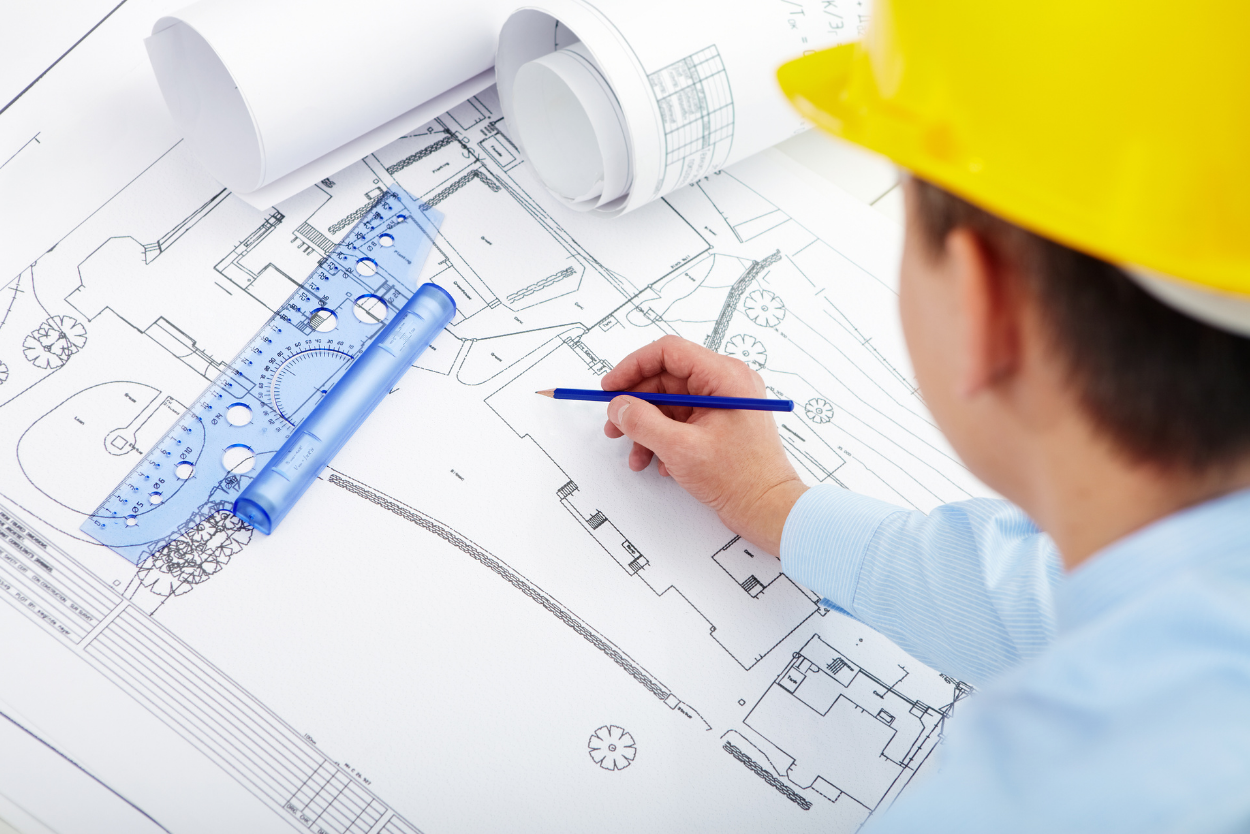
Transform your vision into reality with Claris Design•Build. Our experienced construction project managers ensure every detail is meticulously planned, executed, and delivered to the highest standards. Whether you're embarking on a new build or renovating an existing space, let us handle the complexities while you enjoy the results. Trust Claris Design•Build to bring your project to life with precision, efficiency, and unparalleled quality.
Contact us today to get started on your construction journey!



